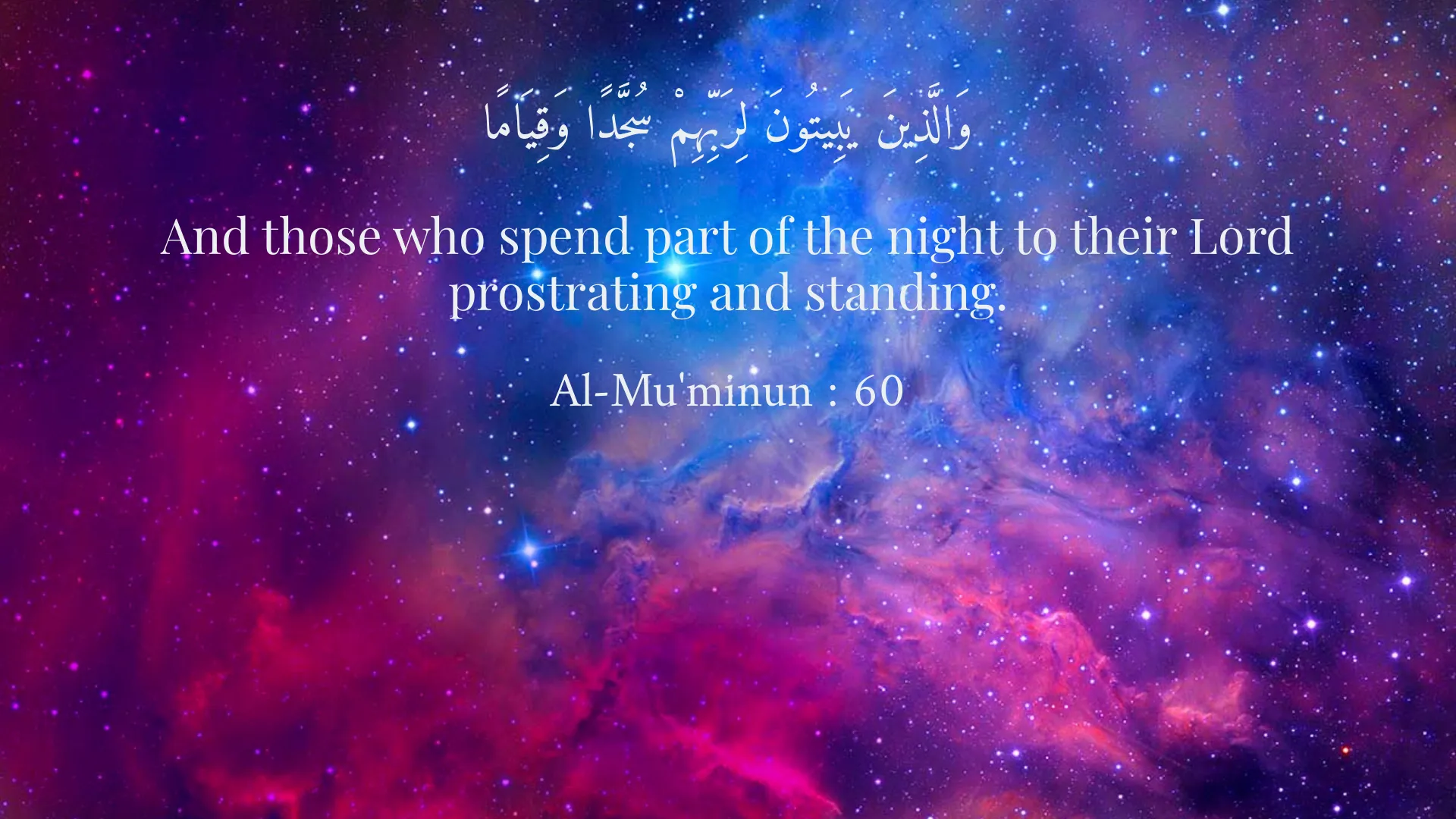Quranic Answer

In the Holy Quran, the significance of supplication (dua) and action is not merely recommended; it is emphasized as a vital practice that intertwines the relationship between humanity and the divine. The belief in the power of prayer is heavily interwoven with the understanding that one’s actions play a crucial role in the manifestations of the results one seeks through supplication. Throughout various verses of the Quran, the interplay between invoking God and taking tangible steps towards righteous actions sets a foundation for both personal growth and divine response. One prominent verse that highlights this connection is found in Surah Al-Mu'minun (Chapter 23, Verse 60): "And those who spend part of the night to their Lord prostrating and standing." This poignant depiction paints a vivid picture of the righteous servants of God who engage in worship during the quiet hours of the night, devoutly praying and reflecting while seeking divine mercy and guidance. It is critical to recognize that the act of worship described here goes beyond mere verbal prayer; it includes physical acts of devotion and the commitment to stand before God in humility. This notion reiterates that prayer is an essential part of worship, a vital link that connects believers to their Creator. However, the Quran implies that supplication is only half of the equation. It is not enough to simply call upon God; one must also accompany their prayers with righteous actions. This view is underscored by another verse found in Surah Ibrahim (Chapter 14, Verse 34), which states: "And He has given you of all that you asked of Him." The implication here is profound: divine bestowal comes as a response to actions taken toward fulfilling one’s requests. This condition emphasizes that the relationship between God and believers is active and engaged; thus, prayer must coalesce with actions that demonstrate one’s commitment to righteousness. Additionally, Surah Al-Baqarah (Chapter 2, Verse 186) serves as a further confirmation of this dynamic interaction: "And when My servants ask you concerning Me, indeed I am near. I respond to the invocation of the supplicant when he calls upon Me." Here, God assures His proximity to His servants and reaffirming His readiness to respond to their supplications. However, this verse also carries an important caveat—that the effectiveness of one’s supplications is contingent upon the supplicant's righteous deeds. This intertwining relationship elucidates an essential concept in Islamic theology: supplication without action cannot fulfill our expectations. The Quran's persistent emphasis on the symbiosis between prayer and action reflects a larger Islamic teaching that promotes a balanced and proactive approach to faith. Believers are encouraged to not only ask for help and guidance but also to engage in meaningful actions that align with their supplications. This reciprocal relationship emphasizes accountability and responsibility, as it makes clear that one's efforts significantly impact their outcomes in both spiritual and worldly affairs. The implications of this theological perspective extend into practical life as well. Believers are compelled to see prayer as a motivation for positive action. In their challenges, they are urged to seek divine support while concurrently working to improve their circumstances through dedicated effort and ethical behavior. This mindset fosters resilience in the face of trials and encourages individuals to pursue justice, kindness, and productivity in their daily pursuits, ultimately serving to enhance their communities. Furthermore, this interlinking of supplication and action aligns with the broader Islamic principle of ihsan (excellence in action). Muslims are called to strive for excellence in all endeavors, whether it be in personal conduct, professional undertakings, or social engagements. By coupling prayer with action, a believer embodies the holistic approach that Islam advocates—where devotion translates into tangible outcomes that benefit oneself and those around them. The act of sincere supplication empowers individuals while simultaneously aligning them with a greater purpose. Fulfilling the terms of righteous action alongside one’s requests translates a believer's faith into positive change. The call for collective engagement and integrity in actions creates a society grounded in mutual support and spiritual harmony. As believers strive for a higher moral ground, they develop not just spiritual awareness but also a compassionate connection with others. In conclusion, the Quran’s teachings serve as a powerful reminder that the convergence of supplication and action is key to realizing divine blessings and achieving desirable outcomes. The integration of prayer with sincere efforts frames the core of a practicing Muslim's life, urging them towards proactive engagement in every facet of their lives. Supplication is not a passive request but an active invitation for believers to take charge of their destinies with both humility and diligence. Thus, prayer should be perceived not just as an act of asking but as a profound motivation compelling individuals towards constructive and righteous actions that resonate deeply with their heart’s aspirations. Through such integrated practices, one can hope to not only witness their prayers being answered but also nurture a fulfilling relationship with their Creator.
Related Verses
وَالَّذِينَ يَبِيتُونَ لِرَبِّهِمْ سُجَّدًا وَقِيَامًا
And those who spend part of the night to their Lord prostrating and standing.
Al-Mu'minun : 60
وَإِذا سَأَلَكَ عِبَادِي عَنِّي فَإِنِّي قَرِيبٌ ۖ أُجِيبُ دَعْوَةَ الدَّاعِ إِذَا دَعَانِ
And when My servants ask you concerning Me, indeed I am near. I respond to the invocation of the supplicant when he calls upon Me.
Al-Baqarah : 186
Short Story
One day, a worshipper was praying and seeking God's mercy with all his heart. After several days, he pondered whether he should only pray or also engage in good deeds. He decided to stand for the morning prayer promptly every day and give charity. Over time, he realized that his connection with God deepened, and his prayers became more uplifting than before.